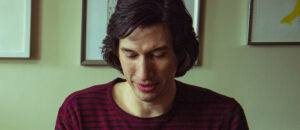Crystal Swan
Movie Rating:
3.5
Crystal Swan is the official submission from Belarus to the Academy Awards this year, a recognition that it rightly deserves. The film is smart and steeped in decades of Belarusian history, and yet it features relatable characters who just want to live their lives.
The film is all about the misadventures of Velya (Alina Nasibullina) in trying to leave late 1990s Belarus for Chicago. She’s a DJ whose obsession with House music has led her to the conclusion that there has to be more in life than post-Soviet Minsk. There also has to be more than her yoga obsessed mother and her drugged-out boyfriend, Alik (Yuriy Borisov). So, Velya sets her sights on the birthplace of House, and starts the process of getting a visa to travel there.
Any attempt to leave the country, especially to the freedom-loving USA, is met with bureaucracy and a lot of red tape. Velya manages to get a sheet of letterhead from a crystal manufacturer and type up a fake letter of employment, which was to prove how good she has it in Belarus and would never dream of fleeing to America permanently. Well, a typo on the letterhead and some sticklers for rules at the American embassy end up pointing toward some random apartment’s number being the only one that can verify the letter’s authenticity and guarantee her chance to a better life. What is Velya to do? She hunts down the location of the phone number, and invites herself into that stranger’s home to sit and wait for her call to freedom.
That setup for the plot is actually pretty clever. Not only does it get this partially spoiled and fully fed-up party girl out of the city and in the middle of nowhere for the majority of the story, it gives her a damn fine reason to stay there too. As Velya becomes more entrenched in the lives of the people in that apartment building, it becomes clearer why she wants to flee. While her mother pining for the days of Soviet occupation is a bit wacky, in the rural country where there are no jobs and fewer hopes, it’s very clear where the heart of the country’s tension and growing pains come from.
True to the nature of Eastern European and Russian cinema, Crystal Swan can get brutal when you least expect it. The emotional beats in movies from countries that are still healing, or being injured again by their oppressive powers, is palatable and unconcerned with the audience’s comfort. This aggression is intentional and unsettling, and is absolutely meant to convey the current political state of the country. Setting the film 20 years in the past, to an era we have regressed back towards, is not an unimportant detail here in Velya’s struggle to get out.
Despite all the missteps in Velya’s plan, we root for her the entire time – not just because America is the land of the free, and not just because we see how terrible life can be for these people in Belarus, but because she wants it so badly and is willing to risk so much to get it. That ambition translates across the languages and cultures, and ultimately makes Crystal Swan easy to get swept up in.





